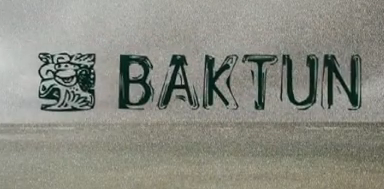Published: 28 August 2013
Region: Latin Amer
Baktún is the world’s first soap opera produced in an Indigenous language. It aims to revitalise Maya language among indigenous and to promote and preserve Maya culture, reports Rising Voices.

“It is a project that essentially looks to empower the use of the Mayan tongue, to make it useful, so that neither the tongue nor culture are lost. Once a language is lost, the culture closely follows.” explains Bruno Cárcamo, Mexican director and producer in an interview for NowThisNews.
The soup opera tells the story of Jacinto, a young man who emigrates to New York City to work, distances himself from family and community but who returns to the village and learns the values of his indigenous culture and heritage.
The title of the series comes from the traditional Maya calendar which is divided in 13 Baktún cycles. Each cycle lasts 394 years and the changing of Baktún signifies the end of an era and an important change or rebirth in the Maya culture.
It was shot in a remote village in Quintana Roo state, 140 milles from Cancún, and the cast was formed mainly by residents of the town with little or no acting experience.
The first country to broadcast Baktún was Mexico but producers expect to get the interest of other Latin American countries such as Bolivia and Peru.
Rising Voices mentioned the social power that soap operas have as they are seen as a form of “educational entertainment”. An Inter-American Development Bank (IDB) study confirmed that soap operas are particularly useful tools for social changes in countries with high illiteracy rates or little internet access. For example they found that in Brazil could be used to shift viewers’ behavior and public attitudes on AIDS, fertility, and relationships.